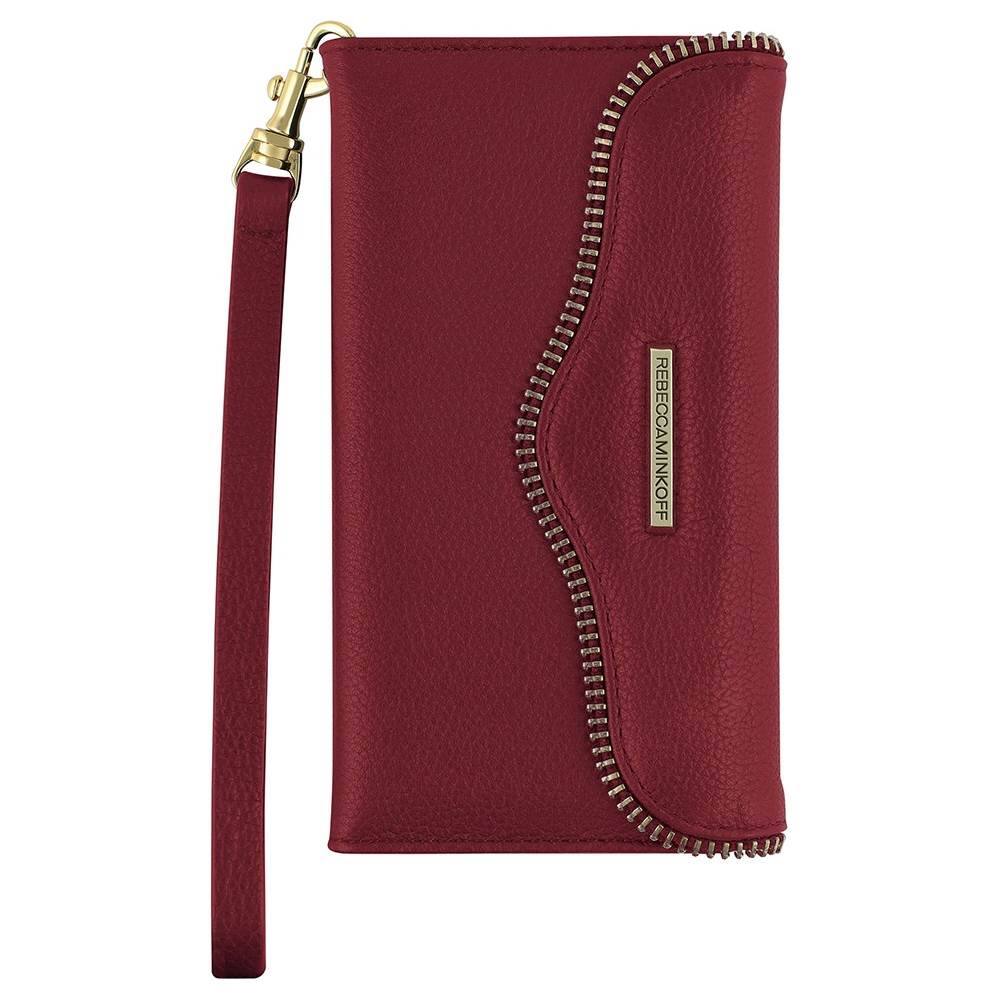rebecca minkoff m.a.b. tech wristlet case for apple iphone 7 - deep red
SKU: EN-D10568

rebecca minkoff m.a.b. tech wristlet case for apple iphone 7 - deep red
The optical heart-rate sensor on the Garmin Vivoactive HR. The peer-reviewed medical journal published a research letter questioning the accuracy of wrist-worn heart-rate monitors. These studies aren't necessarily groundbreaking, but they tend to get significant media coverage. We know fitness trackers aren't perfect. None of these are medical devices and they aren't designed to replace a visit to the doctor. But the data they collect (even if it isn't 100 percent accurate) can still be useful. Fitbit, Garmin, Mio, Polar, Apple and many others use a similar technique when it comes to measuring heart rate -- flickering green LED lights illuminate the capillaries while a sensor measures the blood as it flows past.
Accuracy for these optical sensors will vary from person to person, This is due to factors such as fit, position, sweat, hair density and sometimes even skin color, The tracker should be positioned a finger width away (two fingers when working out) from the wrist bone, It should be tight, but not that tight where it's going to leave an indentation on your skin, A tracker that is too rebecca minkoff m.a.b. tech wristlet case for apple iphone 7 - deep red tight could affect blood flow and actually have a negative impact on accuracy, Many of the top-selling fitness trackers with optical heart-rate sensors are accurate when it comes to resting heart rate, Results can vary during workouts, though, and that's exactly what the JAMA study focused on, In my testing, the Garmin Vivoactive HR and Fitbit Surge were fairly accurate on an easy run, but both struggled a bit (the Surge more than the Garmin) during a hard interval run when compared to data collected from a Polar chest strap, You can view the results below (click here to view an interactive version of the chart)..
The results were relatively accurate. There were times it was off slightly, but the Charge 2 performed well. The tracker averaged my heart rate at 65 bpm, compared to 67 bpm recorded on the chest trap. You can view the full results below (click here to view an interactive version of the chart). Heart-rate tracking is useful on fitness trackers for two reasons: it helps the tracker better estimate calorie burn and improves sleep tracking measurements. And, when used properly, it can help you gain a better understanding about your overall health. Optical heart-rate sensors also provide a convenience factor you don't get with a chest strap: they can be used continuously for days, months, or even years (with charging), compared to a chest strap that you would only wear for the length of your workout.
One benefit is being able to track resting heart rate, which is the number of times your heart beats per minute when you're at rest, (Note that your heart rate will dip even lower when sleeping), Trackers from Fitbit, Garmin and Apple are all able to determine resting heart rate, Resting heart rate data shown on the Fitbit app, But keep in mind that different trackers and smartwatches sample your heart rate rebecca minkoff m.a.b. tech wristlet case for apple iphone 7 - deep red at different rates, Fitbit and Mio offer continuous tracking on 1-second intervals, while Garmin varies its sampling rate depending on your activity, The Apple Watch measures heart rate every 10 minutes (unless working out, when it's measured one a 1-second interval), Despite these varied sampling rates, resting heart-rate measurements on most of the top trackers remain pretty consistent, I have found the resting heart-rate results from the Apple Watch, and various Garmin and Fitbit trackers to be on par with those results from my doctor..
Here's why resting heart rate is helpful. Mine is between 42 bpm and 46 bpm. It's not something to worry about when my resting heart rate is off by a few beats, but when it's at 60 bpm, I know something is wrong. Either I am overtraining and need to take a day off from running, or I could be stressed from work and it may be time for some relaxation. Now as we've said: these aren't medical devices, and as the JAMA study found, optical heart-rate sensors aren't 100 percent accurate. But that shouldn't worry you. A tracker that is off by 5 to 10 bpm is still good enough for tracking resting heart-rate trends, and even for everyday fitness tracking.